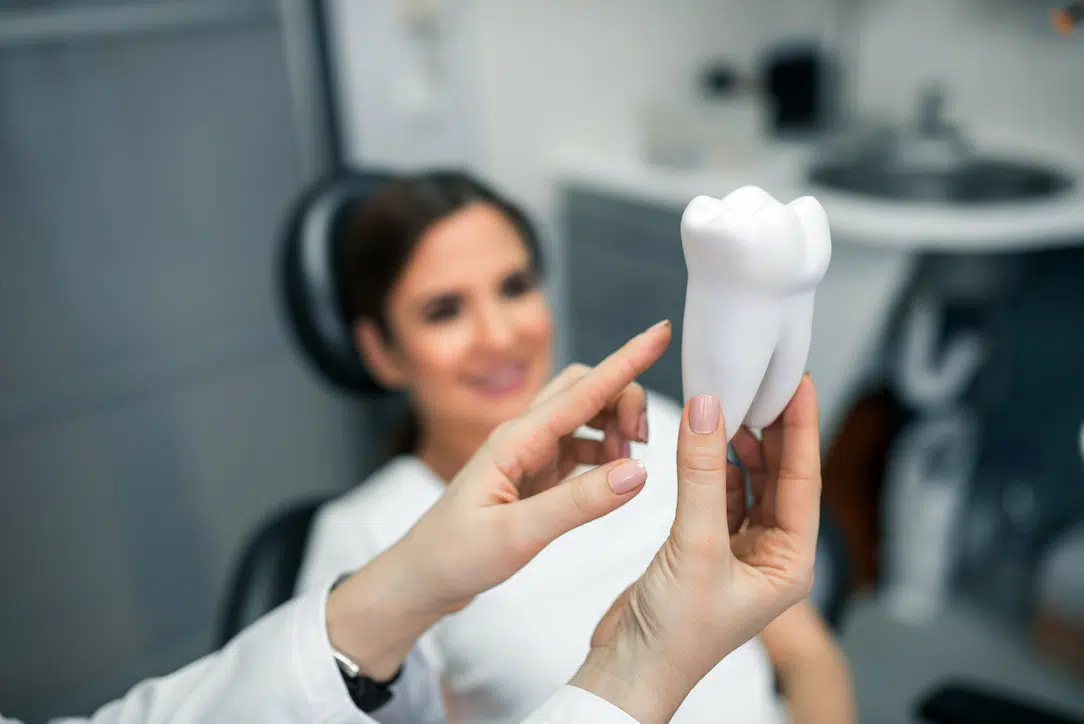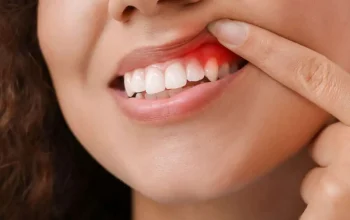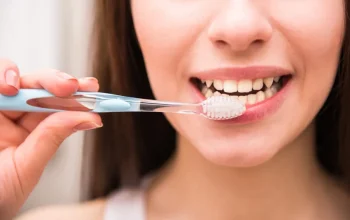In a world where myths and misconceptions do the rounds, it’s important to separate fact from fiction. This is especially true when it comes to your oral health.
Believe these common dental myths at your own risk and you could do more harm than good. Here are some of the biggest myths you need to know: 1. Tooth decay is caused only by sugary foods and drinks.
1. Brushing Too Hard Is Bad for Your Teeth
Many people believe that the harder you brush, the cleaner your teeth will be. But the reality is, brushing too hard or using an abrasive toothbrush can damage your gums, causing them to recede. Additionally, it wears down your tooth enamel, exposing the soft dentin underneath and creating sensitivity.
This also leaves your teeth more vulnerable to cavities, as brushed-away enamel isn’t easily replaced. Another telltale sign of over-aggressive brushing is a dull appearance to your smile, as the eroded enamel causes the natural yellow dentin to show through.
Lastly, it’s important to know that sugar doesn’t cause cavities; it’s bacteria that eats away at your teeth and creates the acid that leads to decay. Brushing and flossing remove sticky food debris, known as plaque, that promotes this bacteria, which is why it’s so important to brush regularly and avoid sugary drinks.
2. Flossing Isn’t Necessary
When a recent news report declared that flossing wasn’t necessary for good oral health, dentists were quick to debunk the myth. It’s true that it’s difficult to study the effects of flossing because long-term, large-scale, carefully controlled studies aren’t easy or cheap.
For example, it can take months or even years for gum disease to develop, so a study that only follows participants over a short period of time wouldn’t be able to detect any negative effects from not flossing. Nevertheless, researchers have found that flossing (or using an interdental toothbrush) reduces gingivitis and plaque buildup significantly more than brushing alone.
Plus, even if you brush your teeth perfectly, flossing helps remove food debris and bacteria between your teeth and in hard-to-reach places that your toothbrush can’t reach. Aside from this, flossing can also help prevent serious medical conditions such as diabetes, heart disease, pneumonia, and obesity. Moreover, it’s pretty easy for dentists to tell when people aren’t flossing—their gums are usually red and swollen, and they often have hard deposits of tartar that can only be removed with a dental tool.
3. Dental X-Rays Are Unnecessary
While dental X-rays do expose you to electromagnetic radiation, the risk of overexposure is very low. In fact, a full set of X-rays exposes you to less radiation than you might experience riding a plane from Seattle to Medford. X-rays also offer many upsides, such as allowing your dentist to see the bones and tissue that aren’t visible with the naked eye.
General guidelines issued by professional dental organizations suggest that adults with good oral health and low risk should have a full set of X-rays taken every 24 to 36 months. However, these guidelines don’t account for a patient’s unique history or individual risk of tooth decay and gum disease.
In addition, a patient’s age must be considered, as the risk of decay naturally increases with age. Therefore, a dentist’s decision to take an X-ray should always be based on clinical examination and a careful weighing of risks and benefits.
4. Tooth Decay Is Genetic
While genetics does play a role in some oral health issues, it is not the case for tooth decay. Children who see their parents brushing and flossing poorly may develop the same poor habits and be prone to cavities, but it’s not necessarily due to genes.
Scientists have discovered that different communities of bacteria live inside the human mouth, with each person having their own unique microbiome. Some of these bacteria are more likely to cause tooth decay than others. However, the condition of a person’s teeth is mostly determined by lifestyle and dietary choices.
Brushing and flossing, using fluoride toothpaste, avoiding sugary foods, and getting regular dental checkups are the most effective methods for preventing tooth decay and other serious dental conditions. If you have concerns about your oral health, speak to your dentist in Clermont for further advice. They will be able to help you with all your oral health needs. They can also provide preventative treatment to help you avoid more serious dental problems in the future.







